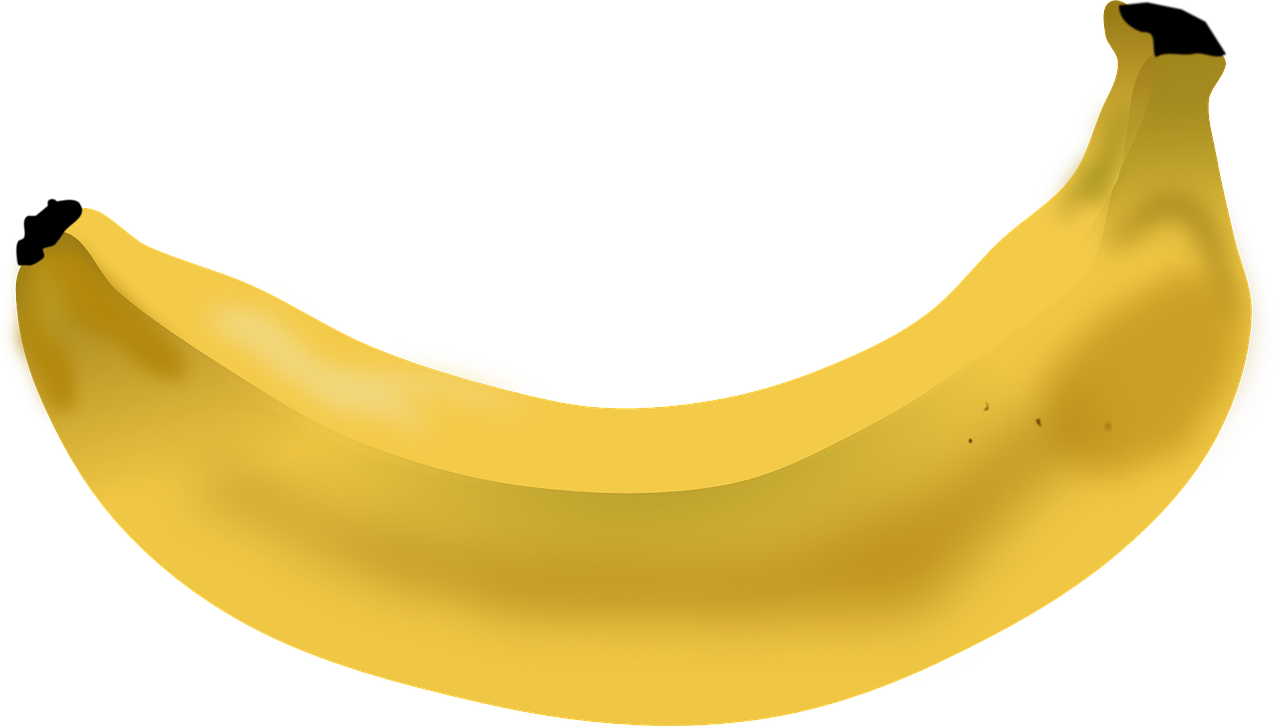Imagine the sheer bliss of biting into a perfectly ripe banana. Its creamy texture and sweet flavor make it the ultimate snack for many. But have you ever wondered just how many of these delectable fruits you can devour in a single day without any adverse effects? Well, fear not my friend, because today we are going to explore the fascinating topic of the daily limit of bananas. Get ready to peel back the layers of this delicious mystery and discover just how many bananas you can indulge in without going bananas!
The Nutritional Value of Bananas
Bananas are not only delicious, but they also offer a wide range of nutritional benefits. They are a great source of energy and are packed with essential nutrients that our bodies need to stay healthy. Let’s take a closer look at the nutritional value of bananas.
Calories and Macronutrients
A medium-sized banana, approximately 118 grams, contains about 105 calories. The majority of these calories come from carbohydrates in the form of natural sugars, mainly glucose, fructose, and sucrose. Bananas are also a good source of dietary fiber, with about 3 grams per serving.
In addition to being a great source of energy, bananas also contain a small amount of protein and almost no fat. This makes them an excellent choice for a healthy snack or a quick burst of energy throughout the day.
Vitamins and Minerals
Bananas are rich in vitamins and minerals that support overall health and well-being. They are particularly high in vitamin C, which is essential for a strong immune system and healthy skin. Bananas also provide a good amount of vitamin B6, which plays a crucial role in brain development and function.
When it comes to minerals, bananas are an excellent source of potassium, an essential electrolyte that helps regulate blood pressure and maintain proper heart function. They also contain small amounts of magnesium and vitamin A, which are important for bone health and vision, respectively.
Overall, bananas are a nutrient-dense fruit that can provide a variety of essential vitamins and minerals to support your overall health.
The Recommended Daily Intake of Bananas
While bananas offer many health benefits, it’s important to consume them in moderation and be mindful of your individual needs. The recommended daily intake of bananas can vary depending on several factors, including age, health conditions, and personal preferences.
General Guidelines
As a general guideline, it is recommended to consume 1-2 medium-sized bananas per day. This can help you meet your daily fruit intake requirement and enjoy the nutritional benefits of bananas without going overboard.
Variations Based on Age and Health Conditions
The recommended daily intake of bananas can vary based on age and specific health conditions. Children and teenagers may require more bananas to meet their nutritional needs, while older adults may need fewer. For individuals with certain health conditions, such as diabetes or kidney disease, it is advisable to consult with a healthcare professional to determine the appropriate amount of bananas to include in their diet.
It is also worth noting that the recommended daily intake of bananas can be influenced by other dietary factors and individual preferences. It’s important to strike a balance and incorporate a variety of fruits and vegetables into your diet to ensure you are getting a wide range of nutrients.
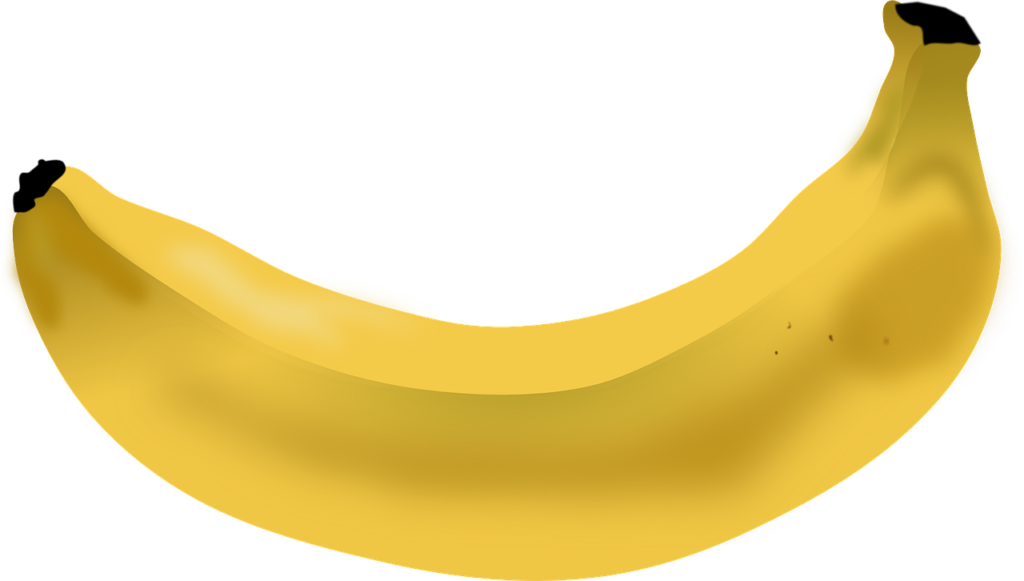
Potential Benefits of Eating Bananas
Beyond their nutritional value, bananas offer a plethora of potential benefits when incorporated into a balanced diet. Let’s explore some of these benefits in more detail.
Improved Digestion
Bananas are known for their high fiber content, which can aid in maintaining a healthy digestive system. The fiber in bananas helps promote regular bowel movements, preventing constipation and promoting overall gut health. Additionally, bananas contain certain enzymes that can help break down carbohydrates and support effective digestion.
Increased Energy Levels
As mentioned earlier, bananas are an excellent source of carbohydrates, making them a quick and easily digestible energy source. The natural sugars in bananas are released slowly, providing a steady stream of energy that can sustain you throughout the day. Whether you need a pre-workout snack or a mid-day pick-me-up, a banana can give you the boost you need.
Managing Blood Pressure
The potassium content in bananas can help regulate blood pressure levels. Potassium is an electrolyte that counteracts the effects of sodium, which can lead to high blood pressure and cardiovascular issues. By incorporating bananas into your diet, you can help maintain healthy blood pressure levels and support overall heart health.
Reduced Risk of Chronic Diseases
The combination of vitamins, minerals, and antioxidants found in bananas can contribute to a reduced risk of chronic diseases. The high potassium content may lower the risk of stroke, while the antioxidants help combat oxidative stress, which is linked to the development of various diseases. Including bananas in your daily diet can be a proactive step towards maintaining your long-term health.
Potential Risks of Consuming Too Many Bananas
While bananas offer numerous health benefits, it’s important to be mindful of potential risks associated with excessive consumption. Here are some factors to consider:
High Sugar Content
Although the natural sugars in bananas are generally considered healthy, consuming too many can still contribute to a high overall sugar intake. This can be a concern for individuals with diabetes or those trying to manage their blood sugar levels. It’s important to balance your banana consumption with other low-sugar fruits and monitor your blood sugar levels accordingly.
Increased Caloric Intake
Bananas, while nutritious, do contain calories. If you consume too many bananas without considering the overall caloric intake, it can lead to weight gain. This is particularly important to keep in mind if you’re on a calorie-restricted diet or trying to lose weight. Be mindful of portion sizes and balance your banana consumption with other low-calorie foods.
Digestive Issues
While bananas are generally well-tolerated by most individuals, consuming excessive amounts can sometimes lead to digestive issues. Some people may experience bloating, gas, or even diarrhea from consuming too many bananas. If you notice any discomfort, it’s advisable to reduce your banana intake and see if the symptoms improve.
Allergic Reactions
Banana allergies are relatively rare but can occur in some individuals. Symptoms can range from mild, such as itching or hives, to more severe reactions like difficulty breathing or anaphylaxis. If you have a known allergy to bananas or suspect you may be allergic, it’s important to avoid consuming them and seek medical advice if needed.
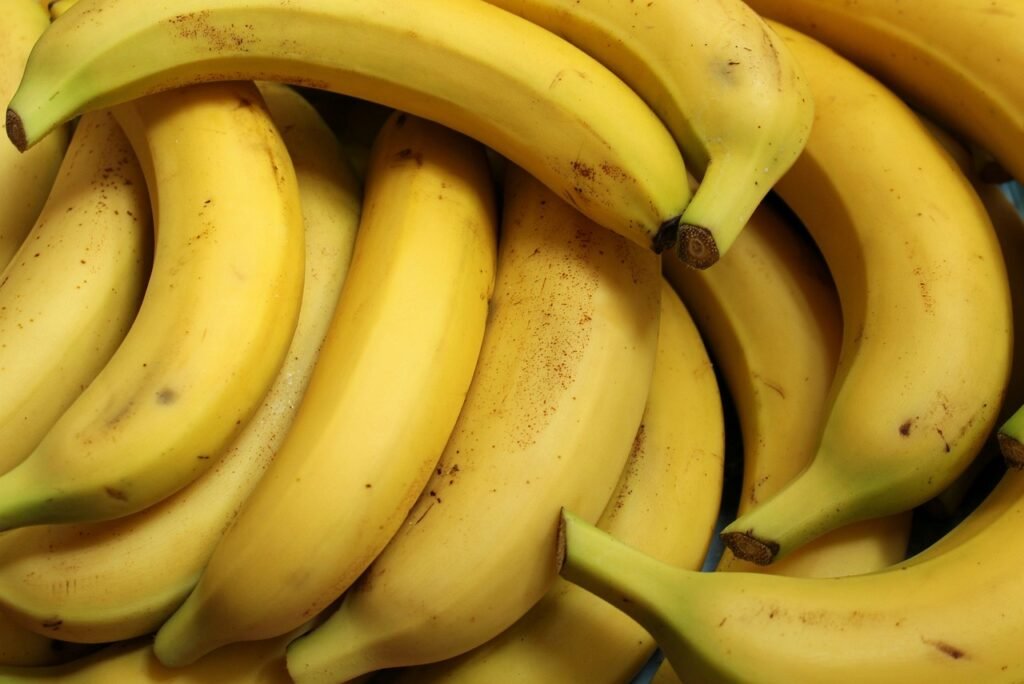
Factors Influencing the Number of Bananas You Can Eat
The optimal number of bananas you can consume varies from person to person. Several factors influence the ideal amount for you. Here are a few key considerations:
Caloric Needs
It’s important to consider your individual caloric needs when determining how many bananas you can eat in a day. If you have higher energy requirements due to physical activity or a fast metabolism, you may be able to consume more bananas without exceeding your daily caloric intake. On the other hand, if you have lower energy needs, you may need to limit your banana consumption to stay within a healthy calorie range.
Activity Level
Your activity level also plays a role in determining the number of bananas you can eat. If you have a more active lifestyle or engage in intense physical activity, you may require more carbohydrates and energy from bananas to fuel your workouts. However, if you have a sedentary lifestyle, you may need fewer bananas to meet your energy needs.
Personal Health Conditions
Individuals with certain health conditions may need to limit their banana intake due to specific dietary restrictions or recommendations. For example, individuals with diabetes may need to closely monitor their carbohydrate intake, including the natural sugars in bananas. Similarly, those with kidney disease may need to limit their potassium intake, as bananas are a significant source of this mineral. If you have any specific health concerns, it’s best to consult with a healthcare professional for personalized advice.
Monitoring Your Banana Consumption
To make sure you are enjoying the benefits of bananas without overdoing it, it’s important to monitor your banana consumption. Here are some tips to help you stay on track:
Keeping Track of Portion Sizes
Be mindful of the portion sizes when eating bananas. A medium-sized banana is typically considered one serving, but if you have specific health goals or dietary restrictions, you may need to adjust your portion sizes accordingly. Consider weighing your bananas or using measuring cups to ensure you’re consuming an appropriate amount.
Listening to Your Body’s Signals
Pay attention to how your body responds to the amount of bananas you consume. If you notice any digestive discomfort, changes in energy levels, or other adverse effects, it may be a sign that you need to adjust your banana intake. Everyone’s body is unique, so it’s essential to listen to your own internal cues.
Seeking Professional Advice
If you have any concerns or questions about your banana consumption, it’s always a good idea to consult with a registered dietitian or healthcare professional. They can provide personalized guidance based on your individual needs, health conditions, and dietary goals.
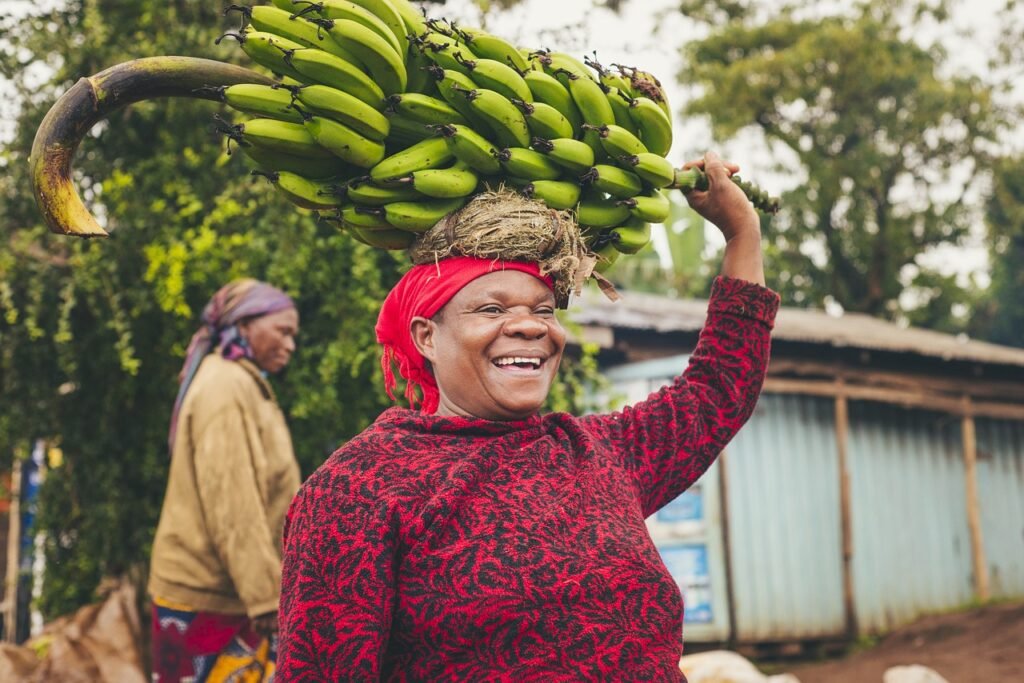
Case Studies: Excessive Banana Consumption
While excessive banana consumption is relatively rare, there have been cases where individuals have consumed a significant number of bananas, leading to potential health issues. Let’s explore a couple of case studies to better understand the risks involved.
Case 1: Banana as the Primary Food Source
In extreme cases, some individuals have adopted a mono-diet consisting almost exclusively of bananas. This means consuming predominantly bananas for extended periods, sometimes even as the sole source of nutrition. While bananas are a nutritious fruit, relying solely on them can lead to nutrient deficiencies and imbalances over time. It’s important to have a well-rounded diet that includes a variety of foods to ensure you’re meeting all your nutritional needs.
Case 2: Overconsumption and Blood Sugar Spike
Consuming a large number of bananas in a short period can cause a sudden spike in blood sugar levels, particularly in individuals with diabetes or insulin resistance. This can disrupt blood sugar control and potentially lead to complications. It’s crucial for individuals with diabetes to monitor their blood sugar levels and work with a healthcare professional to determine appropriate portion sizes and manage their carbohydrate intake effectively.
Healthy Alternatives to Excessive Banana Consumption
If you’re looking to diversify your fruit intake or avoid excessive banana consumption, there are plenty of healthy alternatives to consider. Here are a few ideas:
Diversifying Your Fruit Intake
Instead of relying solely on bananas, try incorporating a variety of fruits into your diet. Each fruit offers its unique set of vitamins, minerals, and antioxidants. Berries like strawberries, blueberries, and raspberries are rich in antioxidants, while citrus fruits like oranges and grapefruits provide an excellent source of vitamin C. By diversifying your fruit intake, you can enjoy a broader range of nutrients and flavors.
Incorporating Other Nutrient-Rich Foods
Bananas are just one piece of the puzzle when it comes to a healthy and balanced diet. Incorporating other nutrient-rich foods can further enhance your overall nutrition. Include foods like leafy greens, whole grains, lean proteins, and healthy fats to ensure you’re getting a well-rounded intake of essential nutrients. This not only adds variety to your diet but also ensures you’re providing your body with everything it needs to thrive.
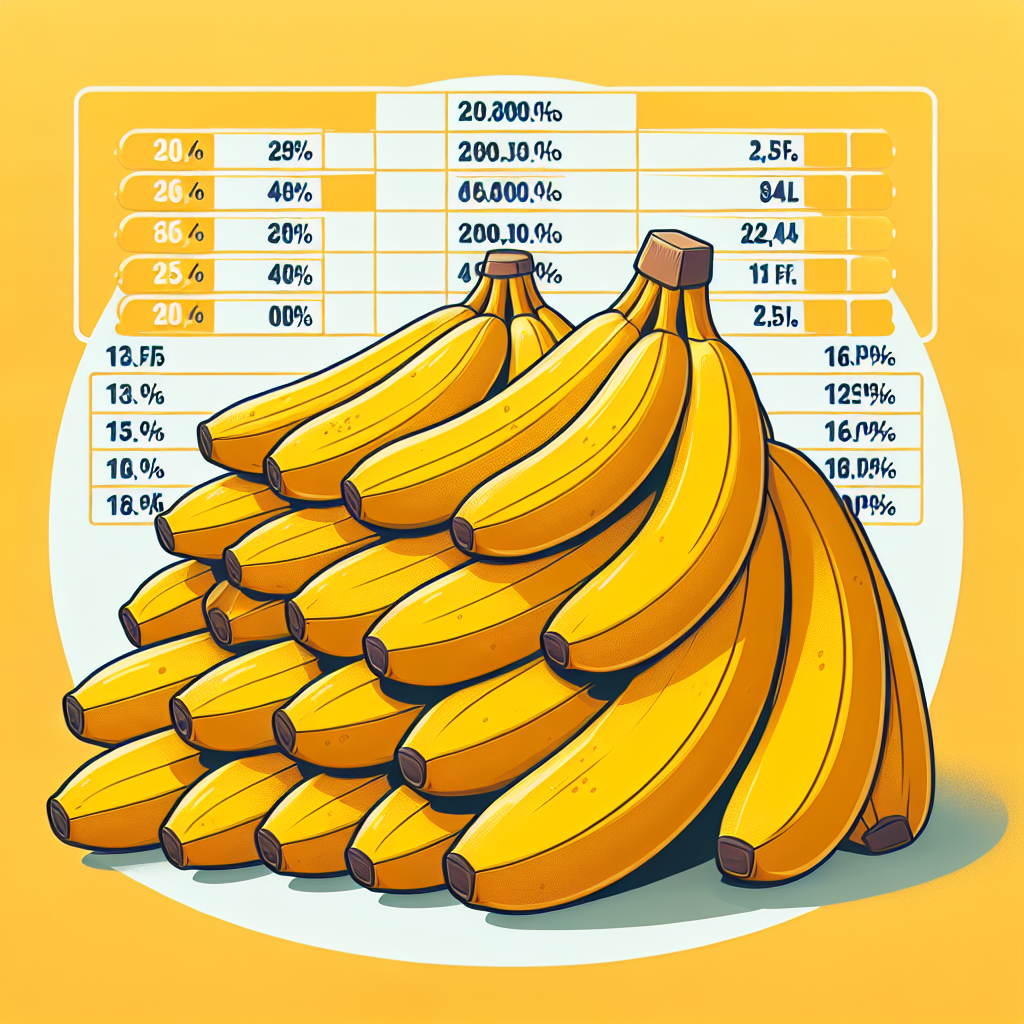
Conclusion
Bananas are a versatile and nutritious fruit that can be enjoyed as part of a healthy diet. Their high energy content, fiber, vitamins, and minerals make them an excellent choice for a quick snack or an energy boost throughout the day. However, it’s crucial to consume bananas in moderation and consider your individual needs and health conditions. By being mindful of portion sizes, diversifying your fruit intake, and seeking professional advice when needed, you can fully enjoy the nutritional benefits of bananas while maintaining a balanced and healthy lifestyle. So go ahead, grab a delicious banana, and savor the goodness it brings to your body!

